From SINNING WITH THE CHOIR
To THE UNTIED STATES
Compiled by Drummond Moir
Copyright 2012, 2014 by Drummond Moir
All rights reserved.
Published in the United States by Three Rivers Press, an imprint of the Crown Publishing Group, a division of Random House LLC, a Penguin Random House Company, New York.
www.crownpublishing.com
Three Rivers Press and the Tugboat design are registered trademarks of Random House LLC.
Originally published in hardcover in slightly different form in Great Britain by Sceptre, an imprint of Hodder & Stoughton, an Hachette UK company, London, in 2012.
Examples in taken from Damn You, Autocorrect!: Hilarious Text Messages You Didnt Mean to Send by Jillian Madison. Published by Virgin Books, reprinted with permission of The Random House Group Limited.
Library of Congress Cataloging-in-Publication Data is available upon request.
ISBN 978-0-385-34660-3
eBook ISBN 978-0-385-34661-0
Cover design by Nupoor Gordon
Cover photographs: Shutterstock
Picture Acknowledgments
Matthew McDermott/Polaris/eyevine: 129. Press Association Images: 42 photo Byron Rollins, 50 photo Susan Walsh, 86 photo Aliosha Marquez. Brendan Smialowski/AFP/Getty Images: 48.
v3.1
A book may be amusing with numerous errors, or it may be very dull without a single absurdity .
Publishers advertisement for Oliver Goldsmiths 1766 novel The Vicar of Wakefield
Every time you make a typo, the errorists win .
Facebook slogan
Contents
Note to the Reader
All typos in this book are intentional.
Any typos made by the compiling editor are also intentional, and are there purely for comic effect.
If during the course of reading this book you think you spot a typo, you havent. If you think you might have spotted one all the same, you havent.
No typos will be corrected for future editions.
Editors Introduction
D uring work experience at one of Londons most prestigious publishing houses, my first task was to check the uncorrected proofs of a thousand-page biography of Kingsley Amis. Full of zeal and armed with my degree in English Language and Literature, Id resolved to keep a list of any word I came across that I didnt know, in order to become as literate, and literary, as possible.
Somewhere around page 600 I came across oppobrium. What, I wondered, could this mean? Trembling with excitement at the idea of expanding my modest vocabulary, I reached for my trusty Oxford English Dictionary .
Only oppobrium isnt a word. Opprobrium is a word, but oppobrium manifestly is not. I checked it, checked it again, and resolved to mark it up in blue pen (which denotes a publishers, rather than typesetters, error), trying (but failing) to use the correct proofreading symbol. When asked the next morning how I was getting on, I replied casually that Id finished the book and loved it. But, I hope they didnt mind, I spotted a typo.
You caught a typo while speed-reading a thousand-page tome? In the midst of 300,000 words about one of the geniuses of English letters, you picked up a missing r in a cumbersome, awkward, skim-it-its-too-clever-for-mere-mortals word? They looked at me like I was Rain Man. I was offered a job shortly after, and in the back of my mind this entirely fluky observation (the result of ignorance, of course, rather than wisdom) is what made all the difference.
Having worked in publishing for a few years, though, I now realize this is nonsense. How wise I felt, spotting that typo, but how utterly banal it must have seemed. There are typos everywhere: in legal documents, medical reports, Bibles, NASA calculations, and government papers. Typos have caused immense embarrassment and obscenity, provoked lawsuits, ruined careers, caused offense, cost millions of pounds, dollars, and pesos, shamed paragons of virtue andI dont have an example, but I bet its trueended marriages.
Because we all make mistakes. No matter which field of human endeavor, regardless of how meticulous we are, how many times we check, what systems we have in place to catch the inevitable howler: every now and then we make a mistake. I know this from painful, painful experience. Show me a typo in a book Ive edited or published, a blurb Ive sent to an author, a letter Ive painstakingly composed, or a note Ive scrawled to remind me to do something, and I will feel like youve taken my firstborn. I will be heartbroken, crestfallen, consumed with self-pity, and utterly, utterly furious. Because there is nothing more crushing, more bruising, more humiliating, more mortifying, or more upsettingto an editor, at leastthan a typo.
Thankfully though (deep breath), its usually not life or death. When soldiers, doctors, politicians, bomb disposal squads, and hostage negotiators make mistakes, people actually die. (Though typos in these realms can also be rather dangerousimagine, if you will, a letter from your doctor asking you to exorcise rather than exercise, recommending that you rust rather than rest, or imploring you to die rather than diet.) When authors, publishers, journalists, and other esteemed members of the literati strive to write flawless, orthographically perfect prose it can often feel like the most important thing in the world
But lets face it, it probably isnt.
So here is a selection of typos that, like any typo of any kind, should never have happened, cannot be excused, and must not in any way be glorified. But they happened, so we might as well enjoy them.
Marketing slogan for a greeting card company. You couldnt make it up
Ive tried my utmost to limit examples and anecdotes to instances where a single letter, punctuation mark, or space is in the wrong place at the wrong time. The occasional exception has been made, however, to accommodate a few howlers that were just too funny to omit.
To Be or To Be
TYPOS IN LITERATURE
T he title of this chapter, To Be or To Be, a bastardization of one of the most famous sentences in the English language, comes from a new edition of Shakespeares Hamlet published some years ago. Six professional proofreaders failed to catch the mistake, which received national publicity.
I am certain of one thing. Whatever may come between usand wherever he may be on earthArthur will always remember that I love ham .
The Parting , Millicent Hemming
My love shes handsome, my love shes boney .
A Portrait of the Artist as a Young Man , James Joyce
Barney, by Rudge$1.50
New York publishers advertisement for Charles Dickenss fifth novel, late nineteenth century
 After being moved to tears by the sheer scale of CERNs particle accelerator, the Large Hadron Collider, Richard Dawkins attempted to express his awe in his new book. But in what he described as an unfortunate misprint, the object of his affection came out as The Large Hardon Collider.
After being moved to tears by the sheer scale of CERNs particle accelerator, the Large Hadron Collider, Richard Dawkins attempted to express his awe in his new book. But in what he described as an unfortunate misprint, the object of his affection came out as The Large Hardon Collider.


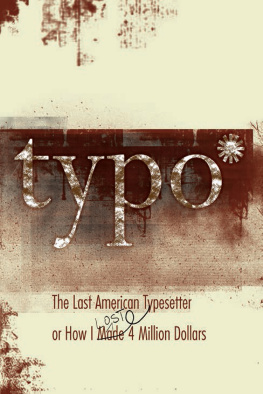
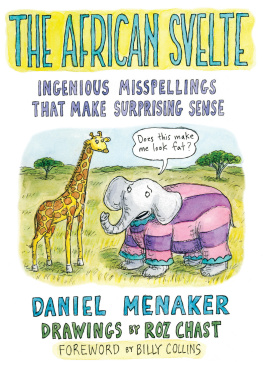
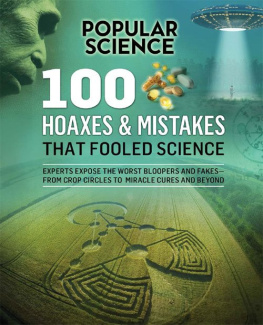
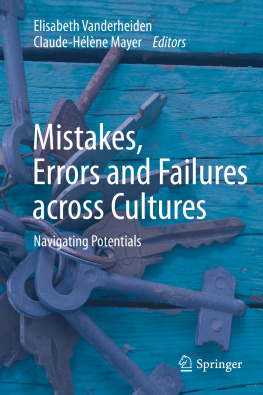
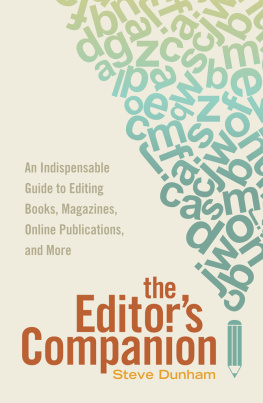
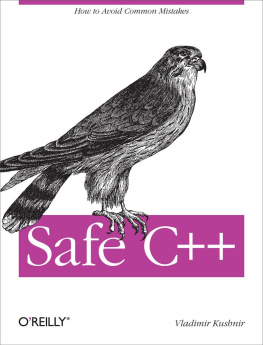
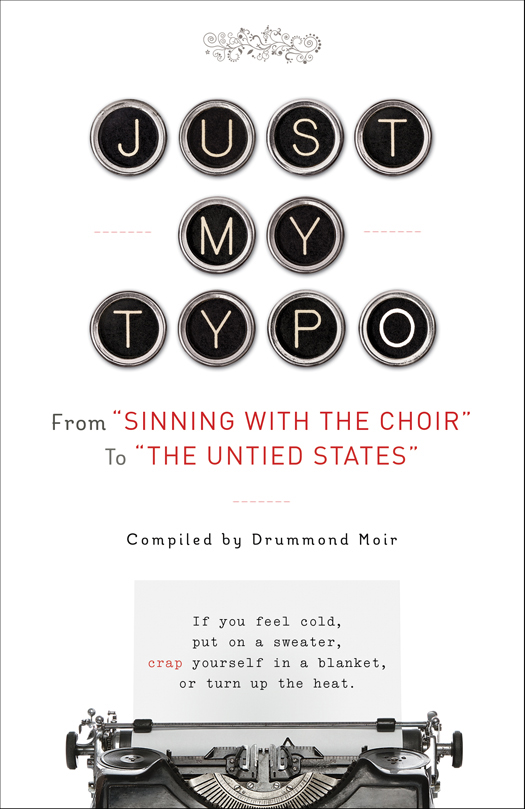
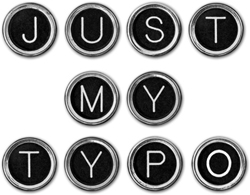



 After being moved to tears by the sheer scale of CERNs particle accelerator, the Large Hadron Collider, Richard Dawkins attempted to express his awe in his new book. But in what he described as an unfortunate misprint, the object of his affection came out as The Large Hardon Collider.
After being moved to tears by the sheer scale of CERNs particle accelerator, the Large Hadron Collider, Richard Dawkins attempted to express his awe in his new book. But in what he described as an unfortunate misprint, the object of his affection came out as The Large Hardon Collider.